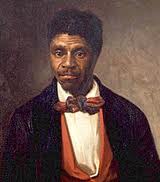Worst Three Decisions by the US Supreme Court: Dred Scott, Citizen’s United, and Florence v Burlington. Dred Scott reinforced slavery – and led to the Civil War. Citizen’s United puts really, really big money in politics – think Mr. Gingrich’s sugar daddy with his $10 million in PAC-Gingrich, and leads to what we have today. Florence allows the police to strip search anyone they arrest.
The good news and is that these decisions force us to recognize that the Justices of the Supreme Court are fallible men and women who sometimes make decisions emotionally and or based on their perceived financial interest, as the five members of the Taney court whos families owned slaves and who voted for slavery. This is also the bad news. The really bad news is that two out of three of these landmark mistakes occurred since January, 2010.
Looking with a long term perspective, the Dred Scott decision was overturned by the 14th Amendment. Roger B. Taney and the other six justices who voted for slavery and against freedom are history. Their names are generally not remembered. Similarly, Citizen’s United and Florence can, should, and someday will be overturned. Roberts, Alito, Kennedy, Scalia, and Thomas will someday join Roger B. Taney in the history books.
I am not a lawyer. But the Constitution is written for the citizens, not the citizens who are also lawyers.
In Dred Scott v Sanford, March, 1857, the Supreme Court under Chief Justice Roger B. Taney, declared that all African Americans, slaves as well as free, were not and could never become citizens of the United States and that the protections of Constitution and the Bill of Rights did not apply to them. This was overturned by the 14th Amendment. (Click here or here, or here for Wikipedia.)
In late 1833 or late 1834 Dr. John Emerson, took Mr. Scott to the Illinois a state in which slavery was prohibited. In the spring of 1836, Emerson moved to a fort in the Wisconsin Territory, taking Scott along. While there, Scott met and married Harriet Robinson, a slave owned by a local justice of the peace. “Ownership” of Harriet was transferred to Emerson.
Scott’s extended stays in Illinois and Wisconsin gave him the legal standing to make a claim for freedom. Emerson died in 1843. Scott offered to buy his freedom from Mrs. Emerson — then living in St. Louis — for $300. The offer was refused. Scott then sought freedom through the courts. The first trial was in 1847.
Seven of the nine justices of the Supreme Court of 1856 had been appointed by pro-slavery presidents from the South, and five of these were from slave-holding families.
Scott claimed that he and the defendant, John Sanford, who lived in New York, were citizens from different states. The main issues for the Supreme Court were whether it had jurisdiction to try the case and whether Scott was indeed a citizen. As noted above, Taney ruled that Mr. Scott was not, and could not be, a citizen, no people brought from Africa or descended of people brought from Africa could be citizens, and the Missouri Compromise was illegal.
The defendant was Dr. Emerson’s widow’s brother, John Sanford, probably because as a woman, Mrs. Emerson had no legal standing to sue or defend a law suit – at the time women were not citizens.
In Citizens United v Federal Election Commission, January 21, 2010, the Supreme Court under Chief Justice John Roberts ruled that citizens and groups of citizens, i.e. corporations, can spend unlimited amounts of money to influence the outcome of elections. (here). Adam Liptak, in the NY Times, 1/21/10, noted;
Overruling two important precedents about the First Amendment rights of corporations, a bitterly divided Supreme Court on Thursday ruled that the government may not ban political spending by corporations in candidate elections.
The 5-to-4 decision was a vindication, the majority said, of the First Amendment’s most basic free speech principle — that the government has no business regulating political speech. The dissenters said that allowing corporate money to flood the political marketplace would corrupt democracy.
The ruling represented a sharp doctrinal shift, and it will have major political and practical consequences. Specialists in campaign finance law said they expected the decision to reshape the way elections were conducted. Though the decision does not directly address them, its logic also applies to the labor unions that are often at political odds with big business.
In Florence v Board of Chosen Freeholders of County of Burlington et al, April 2, 2012, Majority Decision, the Supreme Court under Chief Justice John Roberts ruled that officials may strip-search anyone arrested for any offense, however minor, before admitting them to jails even if the officials have no reason to suspect the presence of contraband.
Mr. Florence was stopped for a traffic infraction and wrongly arrested because police incorrectly believed that he had not paid a fine. He was strip-searched on two separate occasions.
Adam Liptak, in the NY Times, 4/2/12, noted;
The procedures endorsed by the majority are forbidden by statute in at least 10 states and are at odds with the policies of federal authorities. According to a supporting brief filed by the American Bar Association, international human rights treaties also ban the procedures.
Justice Breyer said that the Fourth Amendment should be understood to bar strip-searches of people arrested for minor offenses not involving drugs or violence, unless officials had a reasonable suspicion that they were carrying contraband.

